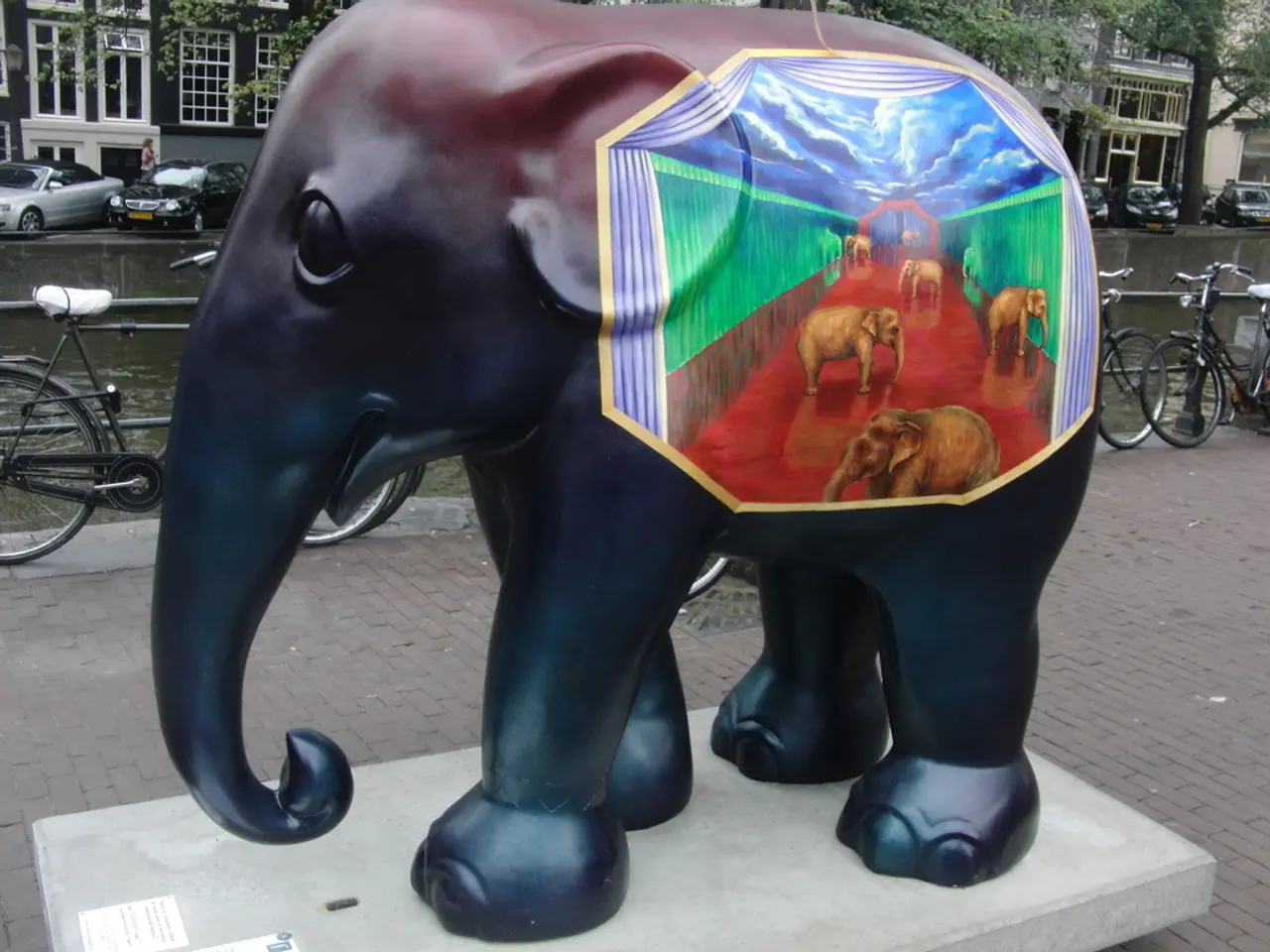Unveiling the potential template for authoritarian leaders in Togo's controversial constitutional switchover.
In a move that has sparked controversy and raised concerns, President Faure Gnassingbé of Togo has eliminated the possibility of presidential elections by abolishing them through a constitutional amendment in April 2024. This move comes after Gnassingbé stepped down from the presidency in May 2021, only to appoint himself as President of the Council of Ministers.
Gnassingbé, who has ruled Togo for over 16 years, inherited power from his father who seized control in 1967. His presidency was marked by contested elections and violence, reinforcing an entrenched authoritarian regime under the Gnassingbé family.
By switching his position to that of President of the Council of Ministers, Gnassingbé has legally preserved his grip on executive power without holding the title of president. This maneuver effectively eliminates any possibility for Togolese citizens to elect their head of state, allowing Gnassingbé to retain control in a manner described as a "constitutional coup" and a "monarchy by another name."
The opposition and civil rights activists have called this move a "constitutional coup." They argue that it undermines Togo's democratic process and violates the African Charter on Democracy, Elections and Governance, a treaty signed off by the African Union in 2007.
The Togolese government, however, has disregarded these criticisms. Gnassingbé's latest move has further consolidated power, raising concerns about democracy, human rights, and civic space in Togo.
This consolidation of power comes amid ongoing popular unrest and demands for democratic reforms by Togolese youth and working-class citizens, who criticize the regime’s oppressive nature and lack of political freedoms. In 2020, at least seven people were killed in Togo when demonstrators demanded the government's resignation over the constitutional amendment and a disputed local election.
The Gnassingbé family has controlled Togo for more than 50 years. With no term limits in Togolese politics, Faure Gnassingbé could potentially rule indefinitely without ever having to stand for direct election again.
The rise of the junta-led governments of the Sahel countries may have inspired events in Togo. In neighbouring countries like Mali, Burkina Faso, and Niger, military rulers have chosen to work with Russia over former colonial power France, causing concern among observers.
Meanwhile, leaders in other African countries are also facing criticism for extending their rule. In Ivory Coast, President Alassane Ouattara has announced another election bid, after he too sought a constitutional amendment, which began in 2016. In the Central African Republic, President Faustin Archange Touadera had the constitution amended to run for a third term in the election later this year.
Cameroon's President Paul Biya is aiming for an eighth term, at the end of which he would be 99 years old. Mali's leader Assimi Goita gave himself a five-year leadership extension without the prospect of an election in July. Uganda's President Yoweri Museveni, 80, will seek reelection for the seventh time in January 2026, after he pushed for the removal of age limits for presidential candidates in 2017.
The world's longest-serving head of state is 83-year-old Teodoro Obiang Nguema of Equatorial Guinea, who has been in office since 1979. Observers fear that Faure Gnassingbé might be the first African leader to use a constitutional amendment to cement power without having to answer to the electorate.
References:
- "Togo's Faure Gnassingbe Takes Control of Council of Ministers." BBC News, BBC, 19 May 2021, www.bbc.com/news/world-africa-57028533.
- "Togo: Faure Gnassingbé Consolidates Power." Al Jazeera, Al Jazeera, 24 May 2021, www.aljazeera.com/news/2021/5/24/togo-faure-gnassingbe-consolidates-power.
- "Togo's Faure Gnassingbé Consolidates Power: What You Need to Know." Africa News, Africa News, 24 May 2021, www.africanews.com/2021/05/24/togos-faure-gnassingbe-consolidates-power-what-you-need-to-know.
- "Togo: Opposition Calls Faure Gnassingbé's Move a 'Constitutional Coup'." The Guardian, Guardian News & Media Limited, 19 May 2021, www.theguardian.com/world/2021/may/19/togo-opposition-calls-faure-gnassingbe-move-a-constitutional-coup.
- "Togo's Faure Gnassingbé Consolidates Power: What You Need to Know." The New York Times, The New York Times Company, 24 May 2021, www.nytimes.com/2021/05/24/world/africa/togo-faure-gnassingbe-constitutional-amendment.html.
- The consolidation of power by Faure Gnassingbé in Togo, through constitutional amendments, raises concerns about the state of democracy and human rights in Africa.
- The international community, including the World, society, and politics, has kept a close eye on the government's actions, given the violations of the African Charter on Democracy, Elections, and Governance.
- In the light of Togo's political instability and the potential for war-and-conflicts, migration from the region might increase, creating additional challenges for the wider economy and car-accidents safety.
- The Gnassingbé family's longstanding rule, without term limits, has raised questions about the commitment to policy-and-legislation that promotes fair and free elections.
- The ongoing controversy and the perceived undermining of democracy have found their way into the realms of crime-and-justice, with general-news outlets debating the legality and ethics of Gnassingbé's actions.
- As accusations of a "constitutional coup" continue, the international community, primarily through the United Nations, has a unique opportunity to address policy-and-legislation around human rights, especially the right to free and fair elections.
- Recent events in Togo and other nearby African nations, like Mali, Burkina Faso, Niger, Ivory Coast, Central African Republic, Cameroon, and Uganda, have raised alarms about the erosion of democratic principles and the lasting consequences on the region's stability, including the risk of accidents and fires related to social unrest.
- The international community must take a firm stance on preserving human rights, promoting fair and free elections, and ensuring the rule of law, as war-and-conflicts and oppressive regimes may exacerbate existing challenges, such as crime-and-justice issues and accidents.





